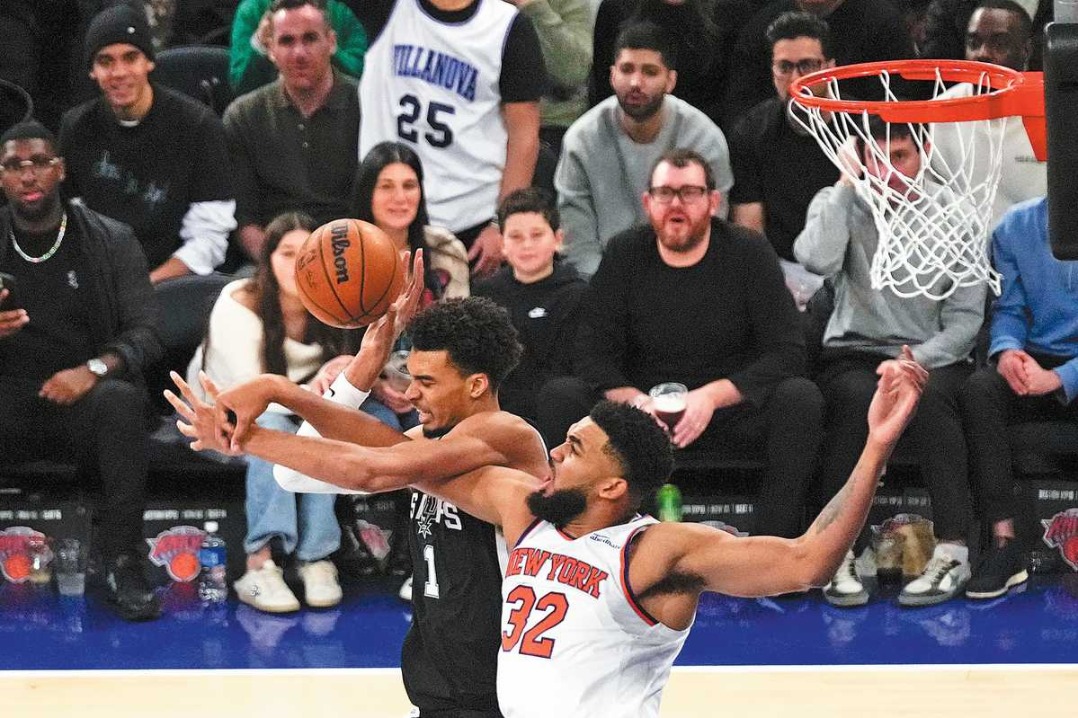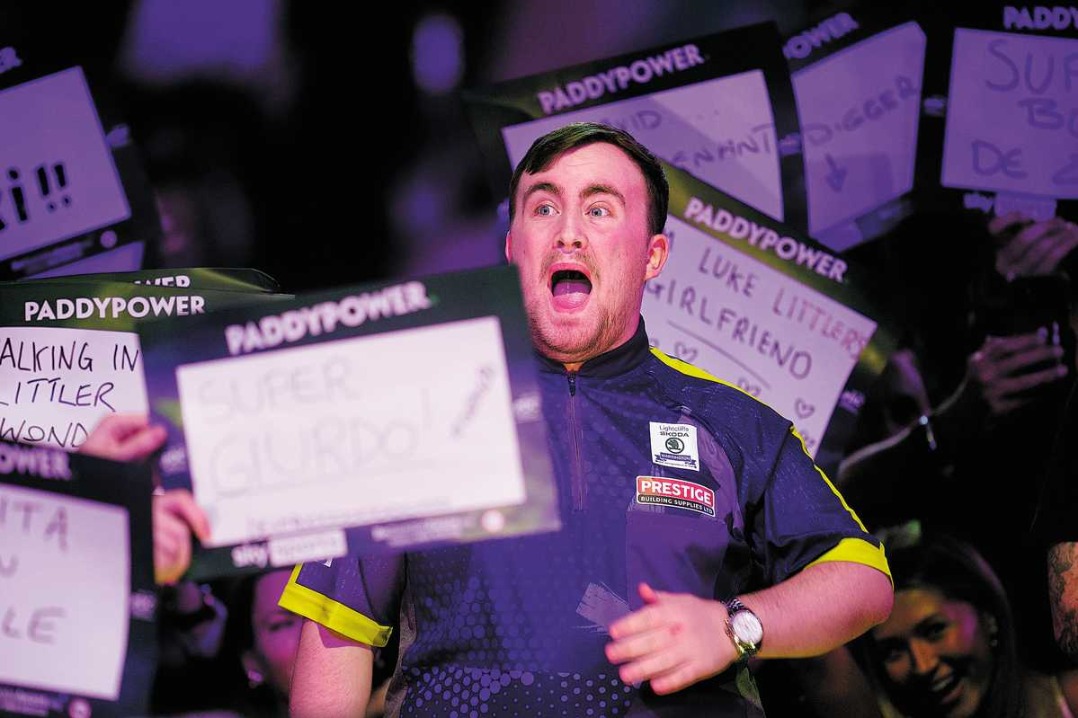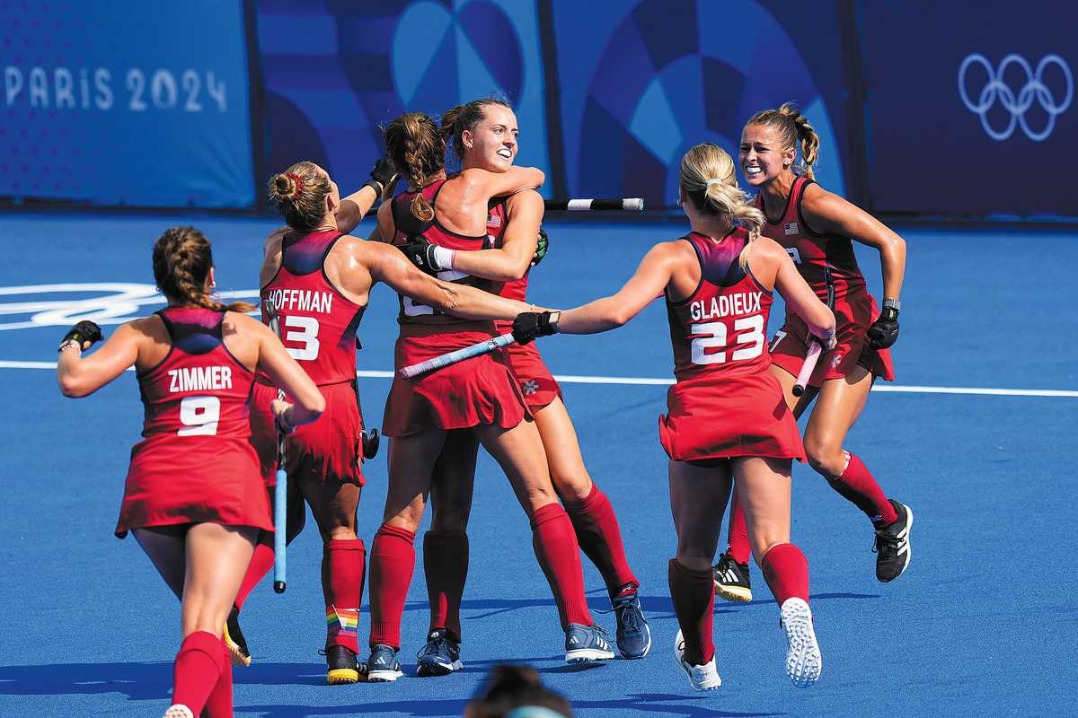Revamped pro league bids to make a splash

Aiming to make a big splash with livestreamed coverage to more than 100 nations, the professional International Swimming League launched its second season in the hub city of Budapest on the weekend.
Over the next five weeks, two expansion teams-the Toronto Titans from Canada and Japan's Tokyo Frog Kings, coached by fourtime Olympic gold medalist Kosuke Kitajima-will battle the Cali Condors (San Francisco), DC Trident (Washington), NY Breakers (New York) and LA Current (Los Angeles) from North America, and the London Roar, Aqua Centurions (Rome), defending champion Energy Standard (Paris) and Team Iron (Budapest) from Europe for $6 million in prize money.
The semifinals start on Nov 14-15, with the finals set for the following weekend.
Each ISL team has a maximum complement of 36 swimmers-18 men and 18 women-and all participants receive a monthly salary of $1,500 through July 1, 2021.
Four teams race against each other in 10 qualifying matches spread across two days. Each match includes 39 events, broken down into individual races, relays and "skins races"-a series of 50-meter freestyle sprints that proceed knockout-style until a winner is crowned.
Competitors earn points according to their order of finish, and the club with the highest overall score wins the match. The top eight teams advance to the semifinals before the field is pared to four for the final.
International stars competing include Chad le Clos of South Africa, Federica Pellegrini of Italy, Adam Peaty of Britain, Kosuke Hagino of Japan and Jeanette Ottesen of Denmark.
Swedish Olympic gold medalist Sarah Sjostrom, who was named MVP last season, and American gold medalist Caeleb Dressel, MVP of the 2019 finals, are both back.
In stark contrast to its debut season when the ISL contested a series of meets across the United States and Europe, the Budapest hub incorporates all the training and competition venues, as well as hotel and transportation services.
The approximately 800 participants aren't under quarantine, but must have a negative COVID-19 test to enter the hub, where no spectators are allowed.
In an interview with swimmingworld.com, ISL founder Konstantin Grigorishin stressed that even in the new reality of the pandemic, the league is striving to maximize "sportainment" while attempting to create lasting memories.
"To organize this competition was not easy," said the Ukrainian. "Our job is to minimize the number of coronavirus cases and create the best medical protocols to take care of swimmers and protect them from this infection.
"For us, records and times are not the big issue anymore. Time is more a modern thing, it is more like a scientific experiment. But when we are talking about post-modern competition, we don't have time, so we have to have some eternal achievements.
"If you are creating superheroes, creating legends, it should be eternal. For example, Johnny Weismuller, the first person to swim faster than one minute in the 100 freestyle. Today, even 13-year-old girls can do that … but it doesn't mean Johnny Weismuller was not a superhero. He was the best of the best of his time, so that is an eternal achievement."
Taking a cue from VAR technology in soccer, the ISL is using video reviews this season, allowing head coaches to dispute disqualifications on starts or relay exchanges.
Another new wrinkle is the "jackpot time" rule, which allows swimmers to steal others' points-but only if they're fast enough. If a race winner is ahead of other competitors by a margin greater than the predetermined "jackpot" time, he or she can claim the points of those rivals.
Most Popular
- Embiid stands tall against Celtics, despite pregame fall
- Wemby scores 42 in a memorable Xmas debut, but Spurs fall short
- Mahomes throws 3 TDs as Chiefs clinch top seed
- Littler is a big deal
- Thohir determined to take Indonesia back to World Cup
- All-Filipino crew set to make history































